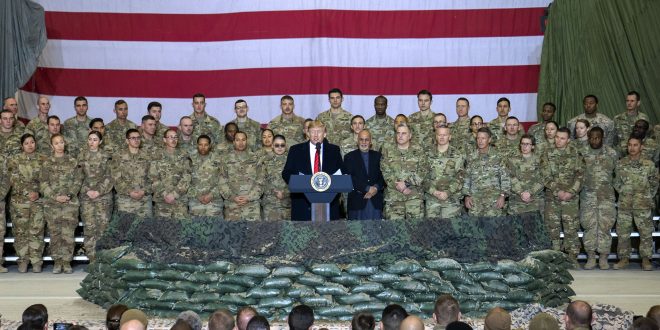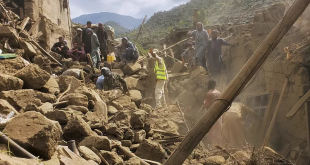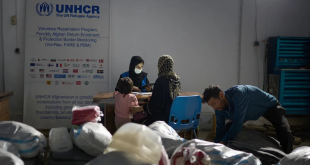KABUL – U.S. President Donald Trump is reportedly considering negotiations with the Taliban to regain access to Bagram Air Base, a major former American military installation in northern Afghanistan. The proposal, which has not been officially confirmed, has raised concerns among Afghan and international observers, who warn that such a move could grant de facto legitimacy to the Taliban regime.
Bagram, once the largest U.S. military base in Afghanistan, was vacated during the final stages of the U.S. withdrawal in 2021. That withdrawal, executed under the Biden administration, followed the earlier U.S.-Taliban agreement signed in Doha during Trump’s presidency. The Taliban returned to power shortly thereafter, sparking widespread humanitarian and security concerns throughout the region.
Trump has recently expressed regret over the abandonment of Bagram, citing its strategic proximity to China and its potential utility in monitoring regional developments. “I would have kept Bagram—not because of Afghanistan, but because of China,” he said in a recent statement. The former president also criticized the loss of U.S. military equipment, much of which was left behind during the withdrawal and has since appeared in various regional conflicts.
Speculation around potential U.S.-Taliban contacts intensified after reports emerged of a U.S. military aircraft landing at Bagram in early April. While the U.S. Department of Defense has denied any high-level meetings with Taliban officials, Russian media claimed the aircraft carried senior American intelligence personnel, fueling rumors of backchannel negotiations.
Critics argue that any such engagement could inadvertently bestow legitimacy on the Taliban’s unrecognized government, which has yet to gain formal recognition from any major power, including regional neighbors. Human rights groups and Afghan diaspora organizations have strongly cautioned against any move that might normalize relations with the current Taliban authorities, citing severe restrictions on women’s freedoms, ethnic discrimination, and the return of Afghanistan as a safe haven for global extremist groups.
“The Taliban has not changed in its ideology or practices,” said an Afghan civil society activist who requested anonymity for security reasons. “Any international deal that treats them as legitimate rulers undermines the struggle of millions of Afghans still hoping for a future based on justice and democracy.”
Afghanistan’s resistance groups—many of which consist of former members of the Afghan National Defense and Security Forces (ANDSF)—have also expressed alarm. Bagram Air Base is located in a region with a significant anti-Taliban presence, and any foreign cooperation with the Taliban could weaken these opposition forces further.
Security analysts warn that even if the Taliban agreed to U.S. re-entry at Bagram, it would not guarantee the safety of American personnel, given the presence of transnational extremist groups across Afghanistan. The United Nations has noted a resurgence of groups such as al-Qaeda, ISIS-K, and Tehrik-i-Taliban Pakistan (TTP) within Afghan territory, many of whom remain hostile to Western interests.
As of now, the U.S. government has made no official announcement regarding Trump’s reported plans. However, the possibility of renewed engagement in Afghanistan continues to spark debate over the long-term consequences of legitimizing groups that remain under heavy international scrutiny.
 Afghanistan Times
Afghanistan Times




